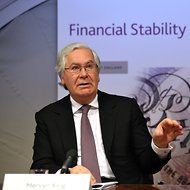 Reuters A car title lender in Georgia.
Reuters A car title lender in Georgia.
As payday loans come under more scrutiny, consumer advocates are also urging a closer look at a similar type of short-term loan often marketed to the poor: car title loans.
Car title loans are short-term loans — the typical term is 30 days — secured by the title to the borrower’s car. If consumers can’t repay the loan in full, they must extend the loan, incurring additional fees and interest, or risk losing their vehicle.
As is often the case with payday loans — short-term, high interest-rate loans secured by a borrower’s next paycheck — those using car title loans usually can’t afford to repay the loan in full and cover their regular living expenses, says a new report from the Center for Responsible Lending and the Consumer Federation of America. That means borrowers are likely to renew their loans multiple times, racking up fees. The average car title borrower renews the loan eight times, paying $2,142 in interest for $951 in credit.
The report is based on data from regulators in the 21 states where car title lenders operate, as well as publicly available information about lenders like TitleMax, one of the largest car title chains.
Car title loans are typically made based on the value of the car, rather than the borrower’s ability to repay.
“As a result,” the report found, “short-term car title loans turn into long-term, high-cost debt with borrowers paying more than twice in interest what they receive in credit.”
What’s more, about one in six loans incurs a repossession fee of about $350 to $400, which is added to the borrower’s balance, leaving the consumer even more in debt, despite also losing the car.
The report advises more regulation of such loans, perhaps along the lines of the Federal Deposit Insurance Corporation’s guidelines for “small dollar” loans of $2,500 or less. Guidelines include loan terms of at least 90 days, and an annual percentage rate of no more than 36 percent.
Have you ever used a car title loan? How did it work out for you?
Article source: http://bucks.blogs.nytimes.com/2013/03/05/consumer-groups-urge-scrutiny-of-car-title-loans/?partner=rss&emc=rss
